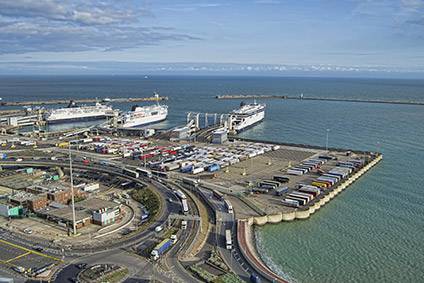
UK industry body The Food and Drink Federation (FDF) has accused the Government of helping the country’s competitors after it announced a delay in implementing new post-Brexit import controls on food products entering from the EU.
New controls were due to be implemented from 1 October but in a statement issued this morning (14 September), the UK said the requirement for pre-notification of agri-food imports will now be introduced on 1 January 2022. The new requirements for export health certificates will be introduced on 1 July next year.
UK Cabinet Office Minister Lord Frost – who is leading the country’s post-Brexit negotiations with the EU – blamed the Covid-19 pandemic and the pressure on supply chains for the delay. The FDF has criticised the Government for the lateness of the announcement.
Lord Frost said: “The Government initially announced a timetable for the introduction of the final stages of those controls on 11 March. The Government’s own preparations, in terms of systems, infrastructure and resourcing, remain on-track to meet that timetable.
“However, the pandemic has had longer-lasting impacts on businesses, both in the UK and in the European Union, than many observers expected in March. There are also pressures on global supply chains, caused by a wide range of factors including the pandemic and the increased costs of global freight transport. These pressures are being especially felt in the agri-food sector.”
How well do you really know your competitors?
Access the most comprehensive Company Profiles on the market, powered by GlobalData. Save hours of research. Gain competitive edge.

Thank you!
Your download email will arrive shortly
Not ready to buy yet? Download a free sample
We are confident about the unique quality of our Company Profiles. However, we want you to make the most beneficial decision for your business, so we offer a free sample that you can download by submitting the below form
By GlobalDataHowever, Ian Wright, the FDF’s chief executive, said: “Many food and drink manufacturers will be dismayed by the lateness of this substantial change.
“Businesses have invested very significant time and money in preparing for the new import regime on 1 October 2021. Now, with just 17 days to go, the rug has been pulled. This move penalises those who followed government advice and rewards those who ignored it.
“As recently as yesterday [12 September], officials assured us that import checks would be implemented as planned.
“The repeated failure to implement full UK border controls on EU imports since 1 January 2021 undermines trust and confidence among businesses. Worse, it actually helps the UK’s competitors.”
The FDF has called on the Government to put in place financial support to help companies prepare for the new import control deadlines.
The British Meat Processors Association (BMPA) said the Government’s announcement has not come as a surprise.
Its CEO, Nick Allen, said: “Considering the problems the entire food supply chain is experiencing, due to haulage and labour shortages, and despite Government assurances right up until yesterday that the planned import controls would be implemented for goods coming into the UK from Europe, it comes as no surprise today that dates for the implementation of import controls have been delayed.
“Industry has foreseen for some time that these delays were needed and have been forced to piece together their supply chain and logistics planning based on what they are hearing from elsewhere in the industry and their own intuition.
“Perhaps the more damaging consequence of this latest government delay is the fact that British companies must now endure nine more months of unequal competition from EU suppliers whose goods are being waved through our borders.
“It also delays the point at which both the UK and EU are subject to exactly the same requirements and can really begin to work out better solutions to the new trading environment.”



